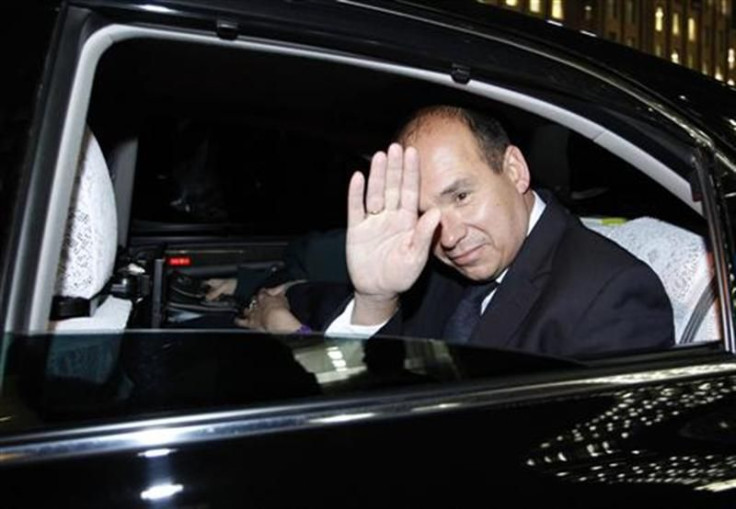Woodford to Sue Olympus Over Dismissal

The ousted British CEO of Olympus Corp abandoned his three-month battle to replace the management of the scandal-tainted maker of medical devices, blaming big Japanese shareholders for not backing his campaign to take back the helm.
Michael Woodford blew the whistle on a $1.7 billion accounting fraud that rocked the once-proud maker of endoscopes and cameras, but failed to win over Japanese institutional shareholders including Olympus' main lenders, who support a board that has been blamed for insufficient oversight.
Despite my having done the right thing, none of the major Japanese institutional shareholders have offered one word of support to me, Woodford said in a statement sent by e-mail to media organizations.
The decision by Woodford, who was fired as chief executive in October, leaves foreign shareholders who want a new slate of directors, including U.S. fund manager Southeastern Asset Management, without a champion to lead any proxy battle when the company convenes an extraordinary shareholders meeting as early as March.
Woodford told a group of journalists on Friday that he would sue Olympus for unfair dismissal and had instructed his lawyers to begin legal actions in Britain. Olympus said in October it was sacking Woodford because he had failed to understand the company's management style and Japanese culture.
There are no grounds whatsoever for dismissal, Woodford said. He will hold a news conference at 3 p.m. JST (1 a.m. EST).
Olympus is being investigated by Japanese police, prosecutors and regulators and U.S. and British authorities over the scandal, in which the firm used dodgy M&A deals to hide investment losses stretching back over two decades.
Woodford also said on Friday he would give an interview next week at the UK Serious Fraud Office.
LAX GOVERNANCE
The scandal at the 92-year-old firm revived concerns about lax corporate governance at Japanese companies generally and sparked speculation that organized crime syndicates were involved in the cover-up.
An external panel appointed by Olympus to investigate the scandal in December issued a scathing rebuke of core management but said it found no evidence that gangsters were involved.
The company's main lender and major shareholder Sumitomo Mitsui Financial Group (SMFG) is backing existing management led by CEO Shuichi Takayama, which is seeking a capital tie-up with a rival firm to bolster Olympus' finances.
Olympus' net assets are dangerously thin after it corrected its accounts to include the effects of the 13-year accounting fraud.
Shareholder equity was just 42.9 billion yen ($556 million) at end-September, or 4.5 percent of total assets - less than a quarter of what is seen as a healthy cut-off. A 20 percent proportion of equity would imply that it needs to raise about 150 billion yen in fresh equity.
CAPITAL CANDIDATES, CORNERSTONE INVESTORS
Japanese media have reported that Sony, Fujifilm Holdings and Panasonic Corp are among those that may ride to the rescue of Olympus.
Japan's big banks such as SMFG and Mitsubishi UFJ Financial Group are often cornerstone investors in Japanese blue chips, with major equity and debt holdings. That puts them in a powerful position to influence board decisions.
In a sign that lenders are in the driving seat at Olympus, the company appointed industrialist Shiro Hiruta, with connections to Olympus' biggest lender SMFG, as the head of an outside panel to advise the firm on a management shake-up.
SMFG, which declined a request from Woodford for a meeting, holds a 3.4 percent equity stake in Olympus as well as 227.5 billion yen ($2.95 billion) in outstanding loans and bonds, according to company data and sources.
The cross-shareholding system in Japan, while clearly serving the country well in the years following the Second World War, is in today's world harmful, Woodford said in his statement.
Such a compliant approach removes one of the essential safeguards in relation to governance and also allows the boards of companies which are underperforming to remain in office.
Nippon Life Insurance Co, one of the firm's biggest shareholders, said it had no comment on Woodford's decision.
Olympus shares slipped 4 percent to 990 yen in early trade but later trimmed their losses. The shares have lost about 60 percent of their value since the onset of the scandal, although they have stabilized as the market gained confidence that the company could avoid a humiliating delisting of its shares that would effectively cut it off from the equity market.
From a general perspective, I'd say Woodford's move to end his campaign was expected. Investors that were buying Olympus shares hoping for his return are disappointed and dumping the stock, said Masayoshi Okamoto, head of dealing at Jujiya Securities.
But there are many other perspectives on Olympus and why it is still trading at this level. There are obviously many investors that think that even without Woodford, the company has such a strong market share (in endoscopes) that it has value as a possible for TOB (potential acquisition target), he added.
(Additional reporting by Mari Saito; Editing by Edmund Klamann, Linda Sieg and Ian Geoghegan)
© Copyright Thomson Reuters 2024. All rights reserved.











